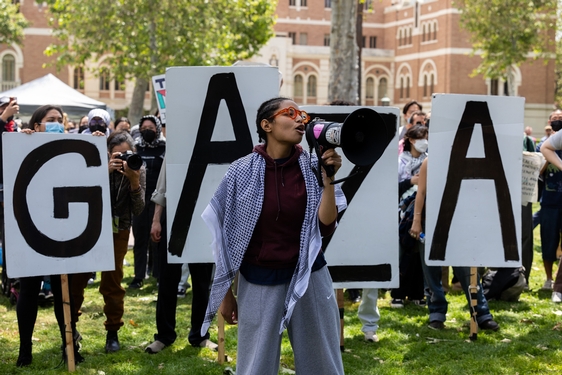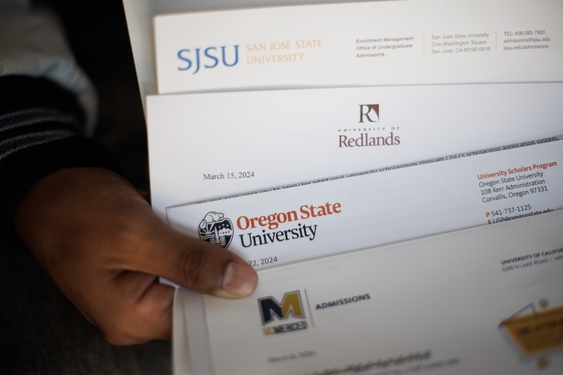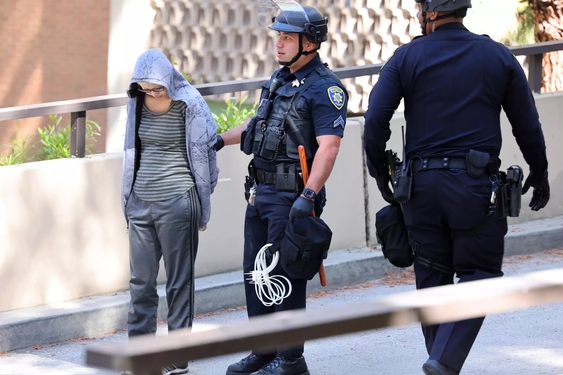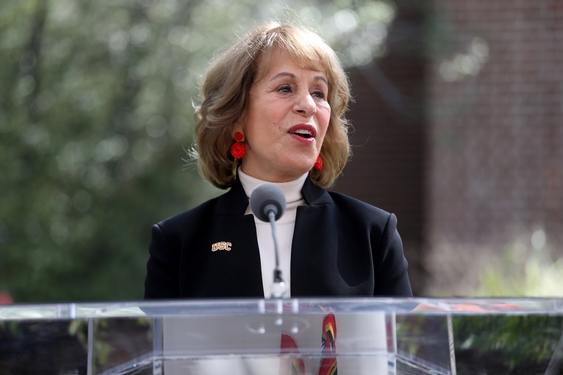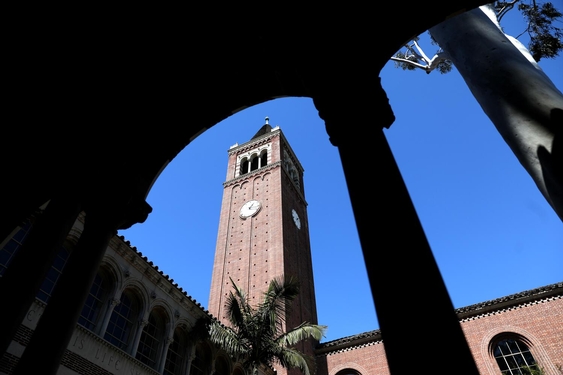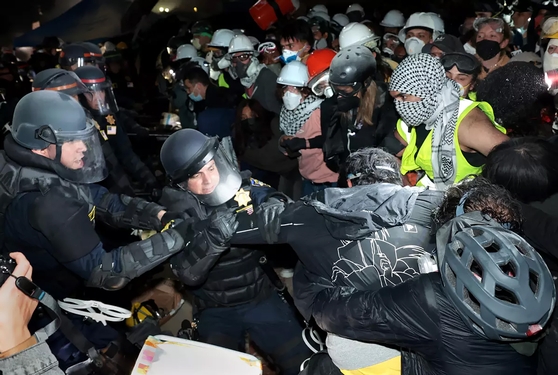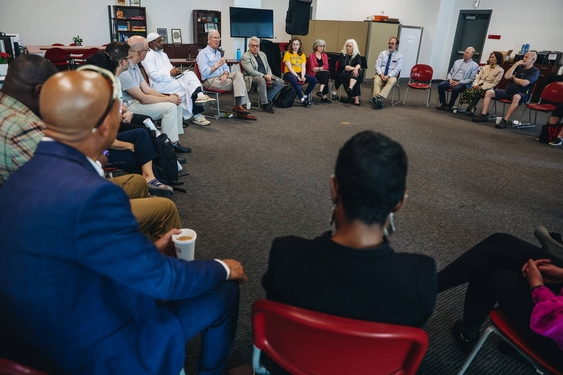The spy agency has arranged this conference call so "Lauren," her middle name, can speak firsthand about the benefits of the Pat Roberts Intelligence Scholarship, named for the U.S. senator from Kansas.
"I’m just beginning my career with the agency," says Lauren, 20. "I feel honored. The recruiting process is very competitive."
The CIA says publishing her full name – or the names of 25 other Pat Roberts scholars it supported during the school year just ended – could hamper their vocations and make work overseas difficult, even dangerous.
But the agency will allow Lauren to disclose that she is studying economics at a "historically black college," and that the college and many classmates know about her internship this summer at the Langley, Va., headquarters. Lauren plans to be an economic analyst: "Not involved in the collection side – doing any of the fun stuff."
She is an exception among Roberts scholars, which could be why the CIA even let her speak.
The scholarships come gift-wrapped in secrecy. Unless an agent-to-be wants to go public, nobody outside the national-security sphere or maybe university admissions offices knows who these students are, where they are enrolled or what classes they are taking.
Instead of using the publicly funded grants to recruit undergraduates such as Lauren, many intelligence agencies send their analysts back to graduate school and immerse them in Arabic, Korean, Farsi or Urdu. More than a dozen employees of the Defense Intelligence Agency are using the scholarships to study overseas at places unaware of their government affiliation.
Credit Felix Moos, a University of Kansas anthropologist, with conceiving the program.
Aroused by the intelligence blunders of the 2001 terrorist attacks and Iraq’s elusive weapons of mass destruction, Moos stands celebrated and scorned as champion of the little-known federal initiative – designed, he says, to build a better American spy.
"I’m the inventor of it!" boasted Moos, a 75-year-old German immigrant. "People ask: Why not call it the Felix Moos Intelligence Scholarship Program? Well, that’s because I’m a KU professor and he (Roberts) is chairman of the Senate Intelligence Committee."
Some other people ask: Why not call it the return of spies to college campuses?
In the last two years, 15 U.S. intelligence agencies have awarded the scholarships to as many as 150 unidentified Americans, mostly agency employees and new hires, to enroll in classes and master critical languages and skills. The pilot program pays scholars up to $25,000 a year.
In pitching his idea to Roberts, Moos never argued for secrecy. The resulting legislation did not dictate secrecy. But the professor hardly is shocked that anonymity would factor into grants issued through intelligence agencies in an age of terror.
"Hello? We’re at war," said Moos. "Anytime the United States is part of a war, you would hope, minimally, that we have good spies."
The program’s most vocal critic is David H. Price, an anthropologist in Washington state. He has written the dark history of government snitches infiltrating colleges to collect dirt on professors and campus radicals up until the 1970s, when Congress exposed the tactic, then banned it.
"Academic freedom is certainly being decreased with this kind of program," said Price, author of Threatening Anthropology: McCarthyism and the FBI’s Surveillance of Activist Anthropologists. "There’s a whole new level of government secrecy coming to campuses, and it’s real damaging."
On paper, the Pat Roberts Intelligence Scholarship Program, or PRISP, is available to undergraduates or graduate-level U.S. citizens pursuing "critical linguist or scientific skills." For every 12 months of scholarship support (up to two years), recipients promise to serve 18 months with the sponsoring agency, if only as an intern.
Sometimes, however, the stipend is dangled as an incentive to promising new hires to cover continuing education or as reimbursement for courses they have already completed.
The National Geospatial-Intelligence Agency "is competing more effectively with the private sector by offering monetary bonuses to selected candidates" with hard-to-find skills, said Director James R. Clapper Jr.
None of the agencies contacted by The Kansas City Star would identify the Roberts scholars by name, defying the custom of other federal scholarship programs.
Officials insist the scholars are not ordered to lay low while taking courses, although "it’s good to be cautious," said CIA spokeswoman Anya Guilsher. "Early in your career, you may not want to put yourself in a position of limiting your options down the road."
PRISP "isn’t meant to fund any kind of on-campus activity other than to fund someone’s education," Guilsher added.
At the Defense Intelligence Agency, Roberts scholars may appear to be full-time graduate students, but "they’re already employees, with security clearance," said scholarship program manager Doris Johnson. "We’re not in the habit of giving out that much scholarship money without making sure they’re hirable."
Foreign universities where Roberts scholars are enrolled "don’t know – and for good reason," said Johnson. "We’re concerned for their safety."
But she says her agency fully informs American universities – among them, the Johns Hopkins School of Advanced International Studies – when employees apply for enrollment.
A prickly relationship nonetheless has existed for decades between America’s higher educators and certain sectors of government, especially the military and intelligence communities.
Some colleges ban the Reserve Officer Training Corps.
Some professors howled "government intrusion" 14 years ago when U.S. Sen. David Boren, an Oklahoma Democrat then leading the intelligence committee, crafted the National Security Education Program.
It still offers fellowships to students in "less commonly studied" languages and cultures. But unlike Roberts scholars, those students are publicly disclosed.
Furthering the friction are memories of CIA and FBI witch hunts of professors thought to harbor Communist sympathies in the 1950s, of secret files gathered on anti-war and civil-rights activists in the 1960s, and of the findings of a special congressional committee led by U.S. Sen. Frank Church, an Idaho Democrat, in the 1970s.
The Church Committee report prompted Congress to forbid the FBI and other agencies from domestic surveillance of Americans on their own turf without court permission. But the war on terror, coupled with government’s expanded powers under the USA Patriot Act, have academia sounding alarms again.
"Given the current atmosphere and the fact most major universities have a lot of students who are non-U.S. citizens, the presence of a CIA employee in your class could have a chilling effect on free discussion," said biology professor Ray Pierotti, who leads the University of Kansas’ chapter of the American Association of University Professors.
"It’s more than a bit troubling."
© 2005, The Kansas City Star.
Distributed by Knight Ridder/Tribune Information Services.





